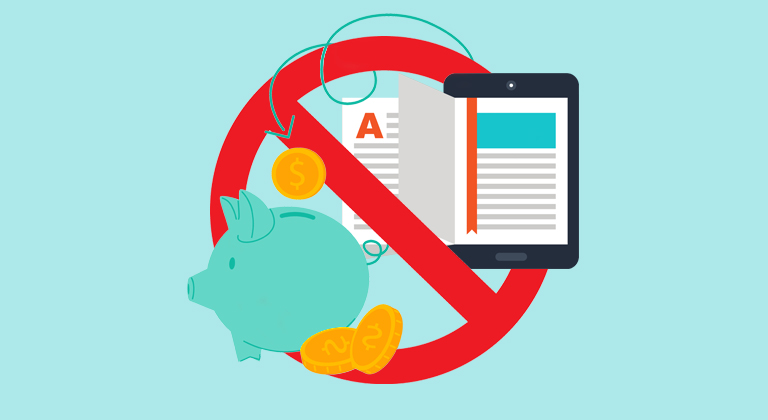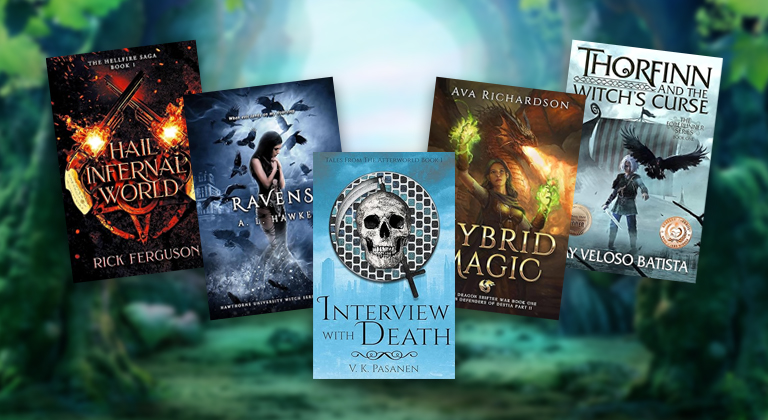What happens when an author gets divorced?
If you’re married, divorce is hopefully not something you’ll ever have to worry about, but it doesn’t hurt to know what might happen just in case. Most people are aware of how assets generally get split up, but for authors it can be more than just a matter of who gets the house and who gets the savings bonds. At stake are not just the past and future royalties of your books, but even the intellectual rights to elements of any ongoing series. Ginger goes over some of the things you might end up facing if you’re ever in this situation, as well as what some of your options might be, but obviously it is not to be taken as any sort of official legal advise. Hope you’ll never need to worry about any of this, though!
Ernest Hemingway was married four times. JK Rowling and Jackie Collins were married twice. Whether there’s statistical truth to it or not, writers in general have a reputation for being wildly romantic people who fall in and out of love far too easily and the best-seller ranks are filled with authors who have been through one, two, or sometimes more divorces.
And when it comes to authors getting divorced, there’s more at stake than just their reputation. Many writers aren’t aware that any books written and published during a marriage are considered joint property – and writers can lose rights to their own intellectual property during a divorce!
This doesn’t just mean losing out on a percentage of future royalties for their printed books. In some cases, authors whose books later get optioned for film or television have had to end up paying out a percentage of the money they received to partners they divorced years earlier.
In the 2015 case Canisius v. Morgenstern, for example, the courts awarded the former husband of author Erin Morgenstern a percentage of the royalties received for her best-selling book The Night Circus even though they’d got divorced four years earlier. This was on top of a $570,000 payment her husband had received at the time of the divorce as “his share of the royalty and book-related earnings [that Mogenstern] has received to date from the publication of [her] novel.”
This can also extend to books written after a divorce – at least, if aspects of the books written post-divorce involve elements or characters from books written prior to the divorce. That means authors who write a successful series of books can find themselves owing a percentage of book royalties to their ex-spouses even for books they haven’t written yet, as long as they’re part of that same series.
This is because ownership of the rights to books (the Intellectual Property Rights) are considered assets by the judicial system – as in something that has a tangible, cash value. This makes sense, since authors generally write books with the intention of earning money from them!
In most states, couples agree to split assets when they get divorced – so everything they own together is inventoried, valued, and considered during this process. The rule of thumb is that things each person had prior to marriage remains theirs, and everything they acquired during marriage is considered joint property. Obviously that depends on a lot of different things, including pre-nuptial agreements, but it’s what generally happens in the process.
If an author writes a book during their marriage, the rights to that book are similarly considered joint property – as in each partner is entitled to a 50/50 share of it. This means book rights themselves end up on the negotiating table during a divorce proceeding.
Many writers consider this an alarming reality when they learn about it. After all, it seems absurd that somebody’s wife or husband can claim ownership of a book that they played no part in writing, editing, publishing, or promoting. When I first learned about this, it seemed almost like a violation to think that my wife (who refuses to read my books and derides them for being ‘just’ romance books) could later claim partial ownership of them if we ever got divorced.
But that’s what happens! And there’s a judicial precedent for it, as well. In the case I mentioned above, Canisius v. Morgenstern, the book that was up for dispute had only reached best-seller status after the couple had separated – yet the courts found Morgenstern’s ex-husband was still entitled to his share of the royalties despite having had no involvement in the costly and time-consuming post-divorce marketing and book promotion tour that had led to the book’s success.
So, authors beware!
But for those writers currently involved in potential divorce proceedings – don’t panic! Just because the rights to any books you’ve written during your marriage are considered joint property, it doesn’t automatically mean that your soon-to-be-ex-spouse is automatically entitled to half of them.
When couples get divorced, all shared property and assets are inventoried – but they’re not necessarily split equally. Each asset is valued and then couples can negotiate about who owns what until they feel that they have an equitable balance.
A shared house, for example, might be viewed as having $100,000 in equity in it. Yet, the only way to realize that equity is to sell the house. A couple might decide that one partner keeps the house entirely (valued at $100,000 because that’s the equity that remains after the mortgage is paid off) if the other partner keeps stocks or bonds valued at $100,000 (which would similarly have to be sold for that cash to be made available.)
In that way, it almost becomes like a game of poker – with one partner keeping the house hoping that it will accumulate in value, while the other keeps the stocks and shares hoping for the same. The end result might be wildly inequitable (there could be a housing market crash and a stock market boom, resulting in one eventually being worth far more than the other) but the value of each asset only needs to equal at the time of divorce.
And book rights are exactly the same. In the early 2000s, for example, the rights to JK Rowling’s Harry Potter series might only have been valued in the tens of thousands of dollars – which is why her first husband never claimed any rights to what she’d written during their marriage, which ended in 1993.
However, when a book is viewed as having the potential to be successful – like Erin Morgenstern’s The Night Circus – it becomes a much more valuable marital asset and one that somebody might fight much more fiercely for a share of.
So, the first step for a married author to protect rights to their published works is to get them valued. Unless the books are consistently earning a significant amount of money, that ‘value’ might be perceived as negligible to lawyers and the like (even though they’re invaluable to the author!)
Then, couples can write a formalized Post-Nuptial agreement in which that agreed-upon value is exchanged for something else of value – such as stocks, shares, or physical property. It doesn’t even need to be equal value – there just needs to be some value so there’s an element of ‘consideration’ (which is the legal definition of a binding contract.)
In a Post-Nuptial agreement, for example, one partner can agree to waive all ownership rights of their spouse’s books in return for a nominal amount such as $1. That’s still ‘consideration’ and considered a binding agreement.
If they don’t get divorced – fine. But if they do, this Post-Nuptial agreement protects an author’s rights of ownership even if their books have since become wildly successful.
It’s kind of a cynical and depressing topic to think about, but one that writers should be aware of and consider. Many of us pour our hearts and souls into our books and it’s horrible to think that an opportunistic partner could try to claim any part of that. However, intellectual property rights are a real thing – and authors who don’t protect their rights could end up losing them. Be warned!












2 Comments